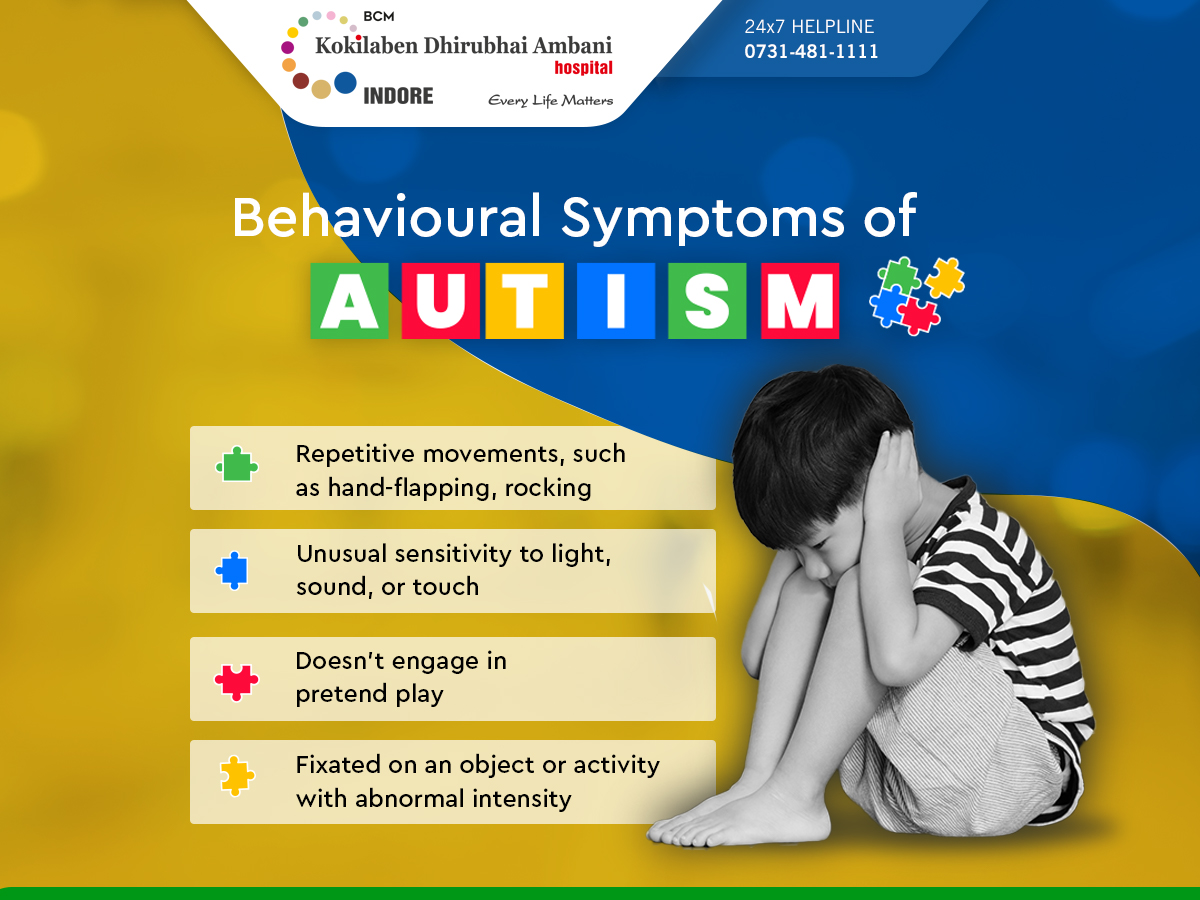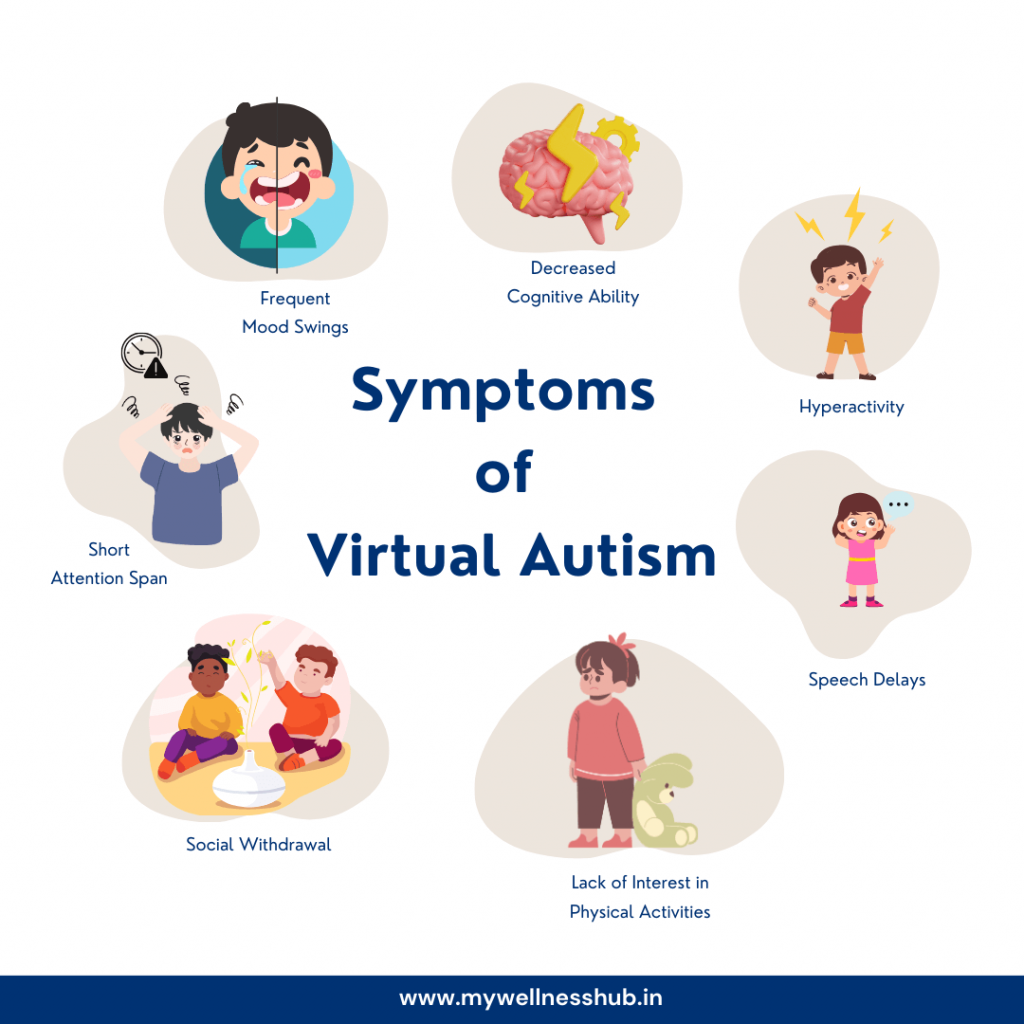Exceptional talents often seen by an Autism Therapist
Exceptional talents often seen by an Autism Therapist
Blog Article
Understanding the Influence of Behavioral Autism on Every Day Life and Social Interactions
You could not recognize exactly how deeply behavioral autism influences everyday life and social communications. Individuals on the range typically browse a world filled up with communication hurdles and sensory overload. These difficulties can lead to aggravation and isolation, affecting their connections and total health.
Specifying Behavior Autism and Its Qualities
Behavioral autism, usually referred to as autism spectrum disorder (ASD), encompasses an array of conditions identified by challenges in social communication, communication, and repetitive actions. You may see that individuals with ASD frequently have a hard time to interpret social hints, which can bring about misunderstandings in conversations. They may discover it difficult to develop eye contact or take part in tiny talk, making social circumstances feel overwhelming.
Communication difficulties can show up in various methods, from delayed speech growth to a choice for using less words. By recognizing these attributes, you can promote a setting that advertises acceptance and motivates reliable interaction, assisting people with autism prosper in their everyday communications.
The Range of Autism: Comprehending Variability in Habits
Autism spectrum problem (ASD) isn't a one-size-fits-all medical diagnosis; it differs extensively among individuals. You could discover that some people with ASD display moderate symptoms, while others may encounter a lot more substantial obstacles. This irregularity can materialize in actions, rate of interests, and sensory level of sensitivities. You may run into individuals who are very spoken and engage conveniently in conversations, while others could like singular tasks or interact non-verbally.
Additionally, the means people with ASD reply to sensory input can differ considerably; some could be bewildered by loud sounds or bright lights, whereas others flourish in boosting settings. The range also includes differences in social interactions; some individuals may battle to translate social cues, while others navigate social settings with loved one ease. Comprehending this variability is essential, as it assists you value each person's distinct experience and dressmaker support to their details demands, fostering a much more comprehensive environment for everybody.
Interaction Obstacles Faced by People With Autism
When you connect with individuals on the autism spectrum, you might notice their distinct interaction challenges. They typically encounter difficulties with both nonverbal and verbal cues, which can influence their social interactions. Recognizing these barriers is necessary for fostering far better links and support.

Verbal Communication Troubles
Many individuals on the autism spectrum experience verbal communication difficulties that can substantially impact their day-to-day interactions. You might discover it testing to express your thoughts, feelings, or requires plainly. This can result in irritation for both you and those around you, as misunderstandings occur. You may battle with initiating discussions, keeping a topic, or comprehending nuances in speech. Often, you could like making use of easy language or repetitive expressions, which can limit your capacity to take part in deeper discussions. Your rate, quantity, or tone may not align with social expectations, creating others to misunderstand your intentions. Acknowledging these difficulties can assist you and your support network develop approaches to enhance communication and cultivate better links with others in your daily life.
Nonverbal Communication Barriers
Spoken interaction isn't the only challenge people on the autism spectrum face; nonverbal interaction obstacles can be just as substantial. These obstacles can lead to misconceptions or misinterpretations of social cues, making interactions feel overwhelming or complex. By dealing with nonverbal interaction, you can find methods to improve your social experiences and boost your total top quality of life.
Social Communication Impacts
Social communications can typically feel frustrating because of the unique interaction difficulties dealt with by people with autism. You may battle with translating social cues, making it difficult to comprehend sarcasm or body language. This can cause misconceptions or unpleasant minutes in conversations. Furthermore, initiating and keeping discussions might really feel tough, causing anxiety in social circumstances. You might favor structured atmospheres, making spontaneous communications uncomfortable. It's also typical to experience difficulty in participating in small talk, which can prevent developing brand-new relationships. Recognizing these challenges can aid you discover approaches to boost communication, such as practicing social abilities in safe settings or utilizing aesthetic aids - Autism Spectrum Therapies. Comprehending your demands enables you to browse social interactions with higher confidence and ease.
Social Interaction and Partnership Building in Autism
While building relationships can be testing for individuals with autism, understanding their one-of-a-kind perspectives and communication styles can foster significant connections. You may discover that lots of people on the spectrum prefer straight communication and may battle with social signs or little talk. By being straightforward in your interactions, you can assist create an atmosphere where they really feel comfortable.
Put in the time to pay attention and observe exactly how they reveal themselves. This insight can lead you in guiding conversations better. Involving in shared interests can additionally work as a bridge to deeper connections. Whether it's a pastime, a favorite program, or a common interest, these usual threads can open doors to relationship.
Day-to-day Live Routine: Browsing Obstacles and Approaches
Navigating day-to-day life regimens can be specifically challenging for individuals with autism, specifically when unanticipated adjustments happen. You might locate convenience in having an organized schedule, as it aids you expect what's next. It's normal to feel overwhelmed or distressed when disruptions take place. To browse these difficulties, consider implementing aesthetic routines or lists. These tools can supply quality and reassurance.
Establishing a routine that includes sensory breaks can also be valuable. This assists produce an understanding setting.
Lastly, technique mindfulness techniques to take care of tension and anxiousness. Straightforward breathing workouts or basing methods can make a substantial difference. By incorporating these methods, you can improve your day-to-day regimen and decrease disturbances, making life feel more workable.
Toughness and Capacities of Individuals on the Autism Range
Comprehending everyday life regimens is just one element of the autism experience. Numerous individuals on the autism spectrum have impressive staminas and capacities that establish them apart.
Additionally, your memory abilities usually radiate, particularly in locations of interest. Aba Therapist Near Me. This flair for preserving details can make you a beneficial resource in areas like art, modern technology, or scientific research. You might also show strong visual reasoning, enabling you to picture intricate concepts and fix problems artistically
Furthermore, your one-of-a-kind perspective on the world can cultivate empathy and understanding in others, improving social interactions. Welcoming these staminas Extra resources not only enhances your confidence but also aids others appreciate the diverse talents you offer the table.
Developing Inclusive Environments for People With Autism
Producing comprehensive atmospheres for people with autism begins with making sensory-friendly spaces that cater to their unique requirements. You can likewise cultivate chances for social interaction, aiding to develop connections and friendships. By making these changes, you'll add to a more inviting ambience for everyone.
Designing Sensory-Friendly Spaces
While developing sensory-friendly spaces, it's important to show on the unique requirements of individuals with autism. Beginning by selecting soothing colors and soft illumination to develop a comforting environment. Include quiet areas where individuals can retreat and reenergize when overwhelmed. You'll desire to decrease loud sounds and distractions, using soundproof products or white sound equipments to aid maintain tranquility. Think about tactile aspects like soft textiles or fidget-friendly things that can give convenience. Establish that areas are adaptable, enabling simple reformation to fit different tasks. Finally, consist of visual routines or clear signage to assist people navigate the area with confidence. By thoughtfully incorporating these elements, you can develop an inviting ambience that sustains sensory needs and promotes general wellness.
Promoting Social Communication Opportunities
Creating sensory-friendly spaces not just addresses specific comfort however likewise sets the stage for purposeful social interactions amongst individuals with autism. Urge peer mentoring, combining people with autism with supportive peers that can lead them with social scenarios. By applying these methods, you can improve social chances, assisting people with autism develop friendships and reinforce their social abilities in a risk-free, inviting atmosphere.

Regularly Asked Inquiries
Just How Can Pals Support A Person With Behavioral Autism?
You can sustain a good friend with behavior autism by holding your horses, listening actively, and respecting their boundaries. Take part in tasks they appreciate, connect honestly, and create a comfy atmosphere where they really feel valued and comprehended.
What Resources Are Offered for Parents of Kid With Autism?
You can check out various sources for moms and dads of youngsters with autism, including support system, educational websites, and regional social work. Getting in touch with various other moms and dads can also provide valuable understandings and shared experiences to assist browse obstacles.
Can Behavioral Autism Adjustment Gradually?

Yes, behavior autism can change gradually. You might observe shifts in communication, social abilities, and actions as your child grows. Early intervention and assistance usually play essential duties in these developmental modifications.
Exactly How Do Sensory Level Of Sensitivities Impact Life?
Sensory level of sensitivities can make daily experiences overwhelming. You might struggle with intense lights or loud noises, bring about stress and anxiety or avoidance. Finding environments that accommodate your demands can substantially enhance your convenience and general daily life.
What Prevail Misconceptions Regarding Behavioral Autism?
You could believe behavioral autism just influences interaction skills, but it's more complex. Lots of presume individuals lack compassion or knowledge, which isn't real. Comprehending these false blog impressions assists foster approval and assistance for those on the spectrum.
Behavioral autism, commonly referred to as autism spectrum condition (ASD), encompasses a variety of conditions defined by difficulties in social interaction, interaction, like it and repetitive habits.Social interactions can typically feel overwhelming due to the unique interaction difficulties faced by individuals with autism.Creating sensory-friendly spaces not only addresses individual comfort however additionally establishes the phase for significant social interactions among people with autism. Motivate peer mentoring, matching people with autism with helpful peers who can direct them through social scenarios. By applying these methods, you can enhance social chances, aiding individuals with autism build relationships and enhance their social skills in a safe, inviting setting.
Report this page